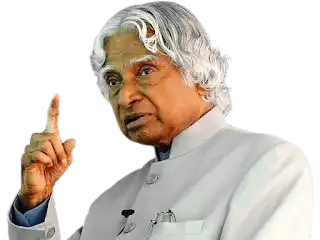1. Early Life and Education
Kalam's journey began in the small island town of Rameswaram, where he was born into a modest family. Despite facing financial challenges, Kalam's desire for learning never dimmed. He completed his education in physics and aerospace engineering, showing early signs of his passion for flight and mechanics.
2. Pioneering India's Space and Missile Programs
Kalam's work at ISRO was marked by significant achievements, including the successful development and operationalization of the Polar Satellite Launch Vehicle (PSLV), which has since become the backbone of India's space satellite launches.
At the DRDO, Kalam played a crucial role in Project Devil and Project Valiant, pioneering efforts to develop ballistic missiles from the technology of the successful SLV program. His leadership in the Integrated Guided Missile Development Program (IGMDP) led to the successful development of missiles like Agni and Prithvi, earning him the moniker "Missile Man of India."
3. Presidency and Beyond
In 2002, Kalam was elected as the 11th President of India, becoming the "People's President" for his easy accessibility and focus on using the presidency to inspire young minds. His tenure was marked by his advocacy for transforming India into a knowledge superpower and his vision of a developed India by 2020, outlined in his book "India 2020: A Vision for the New Millennium."
4. Philosophy and Inspirational Legacy
Kalam was a prolific writer and an inspirational speaker, emphasizing the power of education, dreams, and hard work. His books, such as "Wings of Fire" and "Ignited Minds," have motivated countless individuals to strive for greatness regardless of their circumstances.
5. The People's President
Kalam's presidency was distinguished by his genuine concern for the youth and his belief in their power to change the nation's destiny. He interacted with students across the country, urging them to dream big and contribute actively to national development.
6. Legacy and Tributes
Kalam's passing on July 27, 2015, left a void in the hearts of millions of Indians. Tributes poured in from across the globe, reflecting the immense impact of his life and work. Numerous educational and scientific institutions, including the DRDO Complex in Hyderabad, have been named in his honor, and his birthday is celebrated as "World Students' Day."
7. FAQs
- "Wings of Fire: An Autobiography"
- "India 2020: A Vision for the New Millennium"
- "Ignited Minds: Unleashing the Power Within India"
- "My Journey: Transforming Dreams into Actions"
Kalam was instrumental in the Pokhran-II nuclear tests in 1998, which positioned India as a nuclear state and showcased his commitment to national defense and security.
Kalam received numerous awards, including the Bharat Ratna (India's highest civilian award) in 1997, the Padma Bhushan in 1981, and the Padma Vibhushan in 1990, recognizing his contributions to science and engineering, and his service to the nation.
8. Online Resources
- Kalam's Official Website: Offers insights into his life, work, and contributions.
- Speeches and Lectures: Platforms like YouTube feature many of Kalam's inspirational talks.
- Archival Material: The National Archives of India and the DRDO website provide access to documents and research papers related to Kalam's scientific work.
9. Conclusion
Dr. APJ Abdul Kalam's life was a testament to the power of determination, hard work, and vision. From the shores of Rameswaram to the highest office in India, his journey inspires individuals to transcend limitations and contribute to the nation's progress. Kalam's dream of a developed India by 2020 may have been ambitious, but it ignited a collective aspiration towards achieving greatness. As we remember Kalam, we celebrate not just a scientist or a president, but a visionary who dreamt of a resilient India, empowered by knowledge, innovation, and the indomitable spirit of its people.

